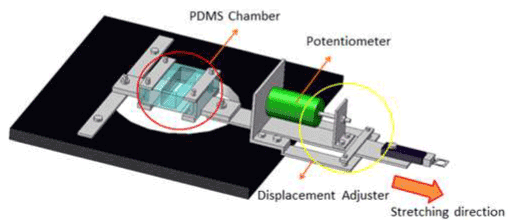Home / Journal / Gender and Women's Studies
Planning for Teacher Recovery from the COVID-19 Pandemic: Adaptive Regulation to Promote Resilience
ABC XYZ
DOI: GWS/4/1/4 10 May 2021
Abstract
Repetitive mild traumatic brain injury (r-mTBI) has been gaining increasing attention from the researchers since several studies have reported that the cognitive dysfunctions after single mTBI become measurably long-term deficits, such as delayed speed of processing and memory dysfunction, after r-mTBI, contributing to the emerging hypothesis that r-mTBI may cause cumulative damage to the brain, and in the absence of cell death, could result in cognitive deficits which may ultimately progress to memory and learning dysfunction. Studies also associated r-mTBI with “second-impact syndrome” and chronic traumatic encephalopathy (CTE) as possible consequences of r-mTBI. However, the potential injury mechanisms involved in r-mTBI still remain unclear and research on r- mTBI is still in early stages. Thereby, in this study an in vitro uniaxial stretching model was used to investigate the r-mTBI related cell damage for clarifying the pathology and post-injury sequelae of r- m TBI in comparison with single mTBI. 3 types of stretching experiments were conducted including the single loading groups that were subjected once to stretching with a strain of 0.1 at a strain rate of 5 s-1, the repetitive loading groups that were subjected again to the same stretching 1 h after the initial stretching, and the sham control groups that were set in and removed from the uniaxial stretching device without receiving mechanical loading. Results shows that even though initial insult induced some level of swelling formation, swelling formation increased by second stretching confirming that r-mTBI causes increased amounts of cellular damage when compared with single insults of the same magnitude. Moreover, the absence of progression to cell death at 24 h post injury is detected after swelling formation by repetitive stretching. These data indicate that if injured neurons are subsequently subjected to low strain at the same level, the rate of injury significantly increases confirming the emerging hypothesis on repetitive mTBI exacerbating traumatic axonal injury.
Keywords
repetitive mild traumatic brain injury, concussion, impulsive strain, axonal stretching, axonal swellings, cell death
Background
To this day, traumatic brain injury (TBI) continues to be a leading cause of mortality and morbidity worldwide, making TBI a significant public health problem [1]. In the United States alone, the estimated number for annual occurrence of TBI is 1,700,000 [2-3] whereas in Asia 300-400, and in European countries (average of the 23 countries) 200-300 people per 100 000 are hospitalized annually due to TBI [4-6]. Moreover, majority of these cases categorized as mild TBI (mTBI) or concussion [2, 7] while, in spite of the name “mild”, approximately 15% of mTBI patients suffering persistent cognitive dysfunction in the United States alone [8]. Furthermore, several studies on professional athletes and military personnel have reported that these cognitive dysfunctions become measurably long-term deficits, such as delayed speed of processing and memory dysfunction, after “repetitive” mTBI (r-mTBI), contributing to the emerging hypothesis that r-mTBI may cause cumulative damage to the brain, and in the absence of cell death, could result in cognitive deficits which may ultimately progress to memory and learning dysfunction [9-17]. Aiding to the human cases, studies on animal models have also demonstrated a worsened outcome with repetitive TBI, where cell death and tissue damage are common consequences of moderate and severe TBI, not mTBI, yet cellular dysfunction and memory deficits are overt after mTBI [18-22].
Methods
Abstract Repetitive mild traumatic brain injury (r-mTBI) has been gaining increasing attention from the researchers since several studies have reported that the cognitive dysfunctions after single mTBI become measurably long-term deficits, such as delayed speed of processing and memory dysfunction, after r-mTBI, contributing to the emerging hypothesis that r-mTBI may cause cumulative damage to the brain, and in the absence of cell death, could result in cognitive deficits which may ultimately progress to memory and learning dysfunction.

Figure 1. Uniaxial stretching device. The device consists of a PDMS chamber on a microscope stage, a linear sensor, a load cell, a servo actuator. The PDMS chamber is clamped to the microscope stage at one edge, and the other edge of the chamber is connected to the actuator.
Results
Abstract Repetitive mild traumatic brain injury (r-mTBI) has been gaining increasing attention from the researchers since several studies have reported that the cognitive dysfunctions after single mTBI become measurably long-term deficits, such as delayed speed of processing and memory dysfunction, after r-mTBI, contributing to the emerging hypothesis that r-mTBI may cause cumulative damage to the brain, and in the absence of cell death, could result in cognitive deficits which may ultimately progress to memory and learning dysfunction.
Discussion
Abstract Repetitive mild traumatic brain injury (r-mTBI) has been gaining increasing attention from the researchers since several studies have reported that the cognitive dysfunctions after single mTBI become measurably long-term deficits, such as delayed speed of processing and memory dysfunction, after r-mTBI, contributing to the emerging hypothesis that r-mTBI may cause cumulative damage to the brain, and in the absence of cell death, could result in cognitive deficits which may ultimately progress to memory and learning dysfunction.
Competing interests
Abstract Repetitive mild traumatic brain injury (r-mTBI) has been gaining increasing attention from the researchers since several studies have reported that the cognitive dysfunctions after single mTBI become measurably long-term deficits, such as delayed speed of processing and memory dysfunction, after r-mTBI, contributing to the emerging hypothesis that r-mTBI may cause cumulative damage to the brain, and in the absence of cell death, could result in cognitive deficits which may ultimately progress to memory and learning dysfunction.
Authors' contributions
Abstract Repetitive mild traumatic brain injury (r-mTBI) has been gaining increasing attention from the researchers since several studies have reported that the cognitive dysfunctions after single mTBI become measurably long-term deficits, such as delayed speed of processing and memory dysfunction, after r-mTBI, contributing to the emerging hypothesis that r-mTBI may cause cumulative damage to the brain, and in the absence of cell death, could result in cognitive deficits which may ultimately progress to memory and learning dysfunction.
Acknowledgements
Abstract Repetitive mild traumatic brain injury (r-mTBI) has been gaining increasing attention from the researchers since several studies have reported that the cognitive dysfunctions after single mTBI become measurably long-term deficits, such as delayed speed of processing and memory dysfunction, after r-mTBI, contributing to the emerging hypothesis that r-mTBI may cause cumulative damage to the brain, and in the absence of cell death, could result in cognitive deficits which may ultimately progress to memory and learning dysfunction.
Reference
- Jennett B (1996) Epidemiology of head injury. J Neurol Neurosurg Psychiatry 60: 362-369. [Crossref]
- Faul M, Xu L, Wald MM, Coronado VG ( 2010) Traumatic brain injury in the United States: emergency department visits, hospitalizations and deaths 2002-2006. Centers for Disease Control and Prevention, National Center for Injury Prevention and Control.
- Mouzon B, Chaytow H, Crynen G, Bachmeier C, Stewart J, et al. (2012) Repetitive Mild Traumatic Brain Injury in a Mouse Model Produces Learning and Memory Deficits Accompanied by Histological Changes. J Neurotrauma 29: 1-13. [Crossref]
- McGregor K, Pentland B (1997) Head injury rehabilitation in the UK: An economic perspective. Soc Sci Med 45: 295-303. [Crossref]
- Tagliaferri F, Compagnone C, Korsic M, Servadei F, Kraus J (2006) A systematic review of brain injury epidemiology in Europe. Acta Neurochir (Wien) 148: 255-268. [Crossref]
- Roozenbeek B, Maas AI, Menon DK (2013) Changing patterns in the epidemiology of traumatic brain injury. Nat Rev Neurol 9: 231-236. [Crossref]
- Laker SR (2011) Epidemiology of concussion and mild traumatic brain injury. PM R 3: S354-358. [Crossref]
- National Center for Injury Prevention Control. Report to Congress on Mild Traumatic Brain Injury in the United States: Steps to Prevent a Serious Public Health Problem. 2003. Atlanta: Centers for Disease Control and Prevention.
- Corsellis JA, Bruton CJ, Freeman-Browne D (1973) The aftermath of boxing. Psychol Med 3: 270-303. [Crossref]
- Collins MW, Grindel SH, Lovell MR, Dede DE, Moser DJ, et al. (1999) Relationship between concussion and neuropsychological performance in college football players. JAMA 282: 964-970. [Crossref]
- Guskiewicz KM, McCrea M, Marshall SW, Cantu RC, Randolph C, et al. (2003) Cumulative effects associated with recurrent concussion in collegiate football players: the NCAA concussion study. JAMA 290: 2549-2555. [Crossref]
- Iverson GL, Gaetz M, Lovell MR, Collins MW (2004) Cumulative effects of concussion in amateur athletes. Neurosurgery 69: 173-183. [Crossref]



